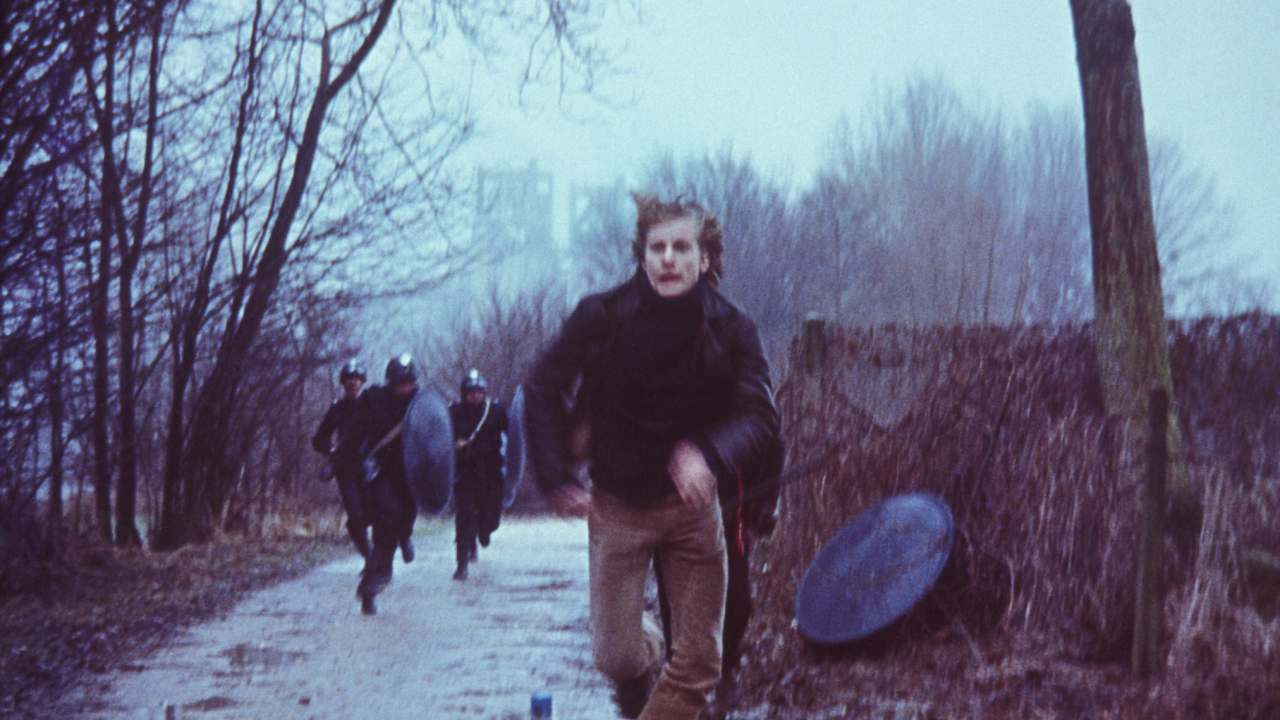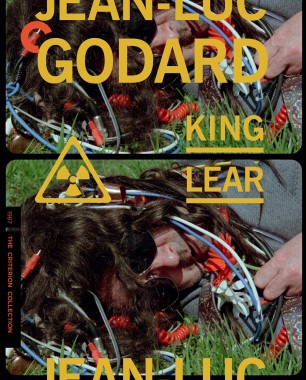Jean-Luc Godard and Jean-Pierre Gorin
Tout va bien

In 1972, newly radicalized Hollywood star Jane Fonda joined forces with cinematic innovator Jean-Luc Godard and collaborator Jean-Pierre Gorin in an unholy artistic alliance that resulted in Tout va bien (Everything’s All Right). This free-ranging assault on consumer capitalism and the establishment left tells the story of a wildcat strike at a sausage factory as witnessed by an American reporter (Fonda) and her has-been New Wave film director husband (Yves Montand). The Criterion Collection is proud to present this masterpiece of radical cinema, a caustic critique of society, marriage, and revolution in post-1968 France.
SPECIAL EDITION FEATURES
- Restored high-definition digital transfer
- Letter to Jane (1972), Jean-Luc Godard and Jean-Pierre Gorin’s postscript film to Tout va bien
- Interview excerpt with Godard from 1972
- Interview with Gorin
- PLUS: Essays by film critics J. Hoberman, Kent Jones and Godard biographer Colin MacCabe, and an excerpted interview with Gorin and Godard from 1972
Cover by Neil Kellerhouse
SPECIAL EDITION FEATURES
- Restored high-definition digital transfer
- Letter to Jane (1972), Jean-Luc Godard and Jean-Pierre Gorin’s postscript film to Tout va bien
- Interview excerpt with Godard from 1972
- Interview with Gorin
- PLUS: Essays by film critics J. Hoberman, Kent Jones and Godard biographer Colin MacCabe, and an excerpted interview with Gorin and Godard from 1972
Cover by Neil Kellerhouse

Cast
- Yves Montand
- He (Jacques)
- Jane Fonda
- She (Susan)
- Vittorio Caprioli
- Factory boss
- Jean Pignol
- CGT delegate
- Pierre Oudry
- Frédéric
- Elisabeth Chauvin
- Geneviève
- Eric Chartier
- Lucien
- Yves Gabrieli
- Léon
- Bugette
- Georges
- Castel Casti
- Jacques
- Michel Marot
- Communist Party representative
- Huguette Miéville
- Georgette
- Anne Wiazemsky
- Leftist
- Jean-René Defleurieu
- Leftist
Credits
- Director
- Jean-Luc Godard
- Director
- Jean-Pierre Gorin
- Screenplay
- Jean-Luc Godard
- Screenplay
- Jean-Pierre Gorin
- Cinematography
- Armand Marco
- Camera operators
- Yves Agostini
- Camera operators
- Édouard Burgess
- Sound
- Antoine Bonfanti
- Sound
- Bernard Ortion
- Editing
- Claudine Merlin
- Editing
- Kenout Peltier
- Set designer
- Jacques Dugied
- Special effects
- Jean-Claude Dolbert
- Special effects
- Paul Trielli
- Set photographers
- Anne-Marie Michel
- Set photographers
- Alain Miéville
- Production representative
- Jean-Pierre Rassam
- Administration
- Alain Coiffier















